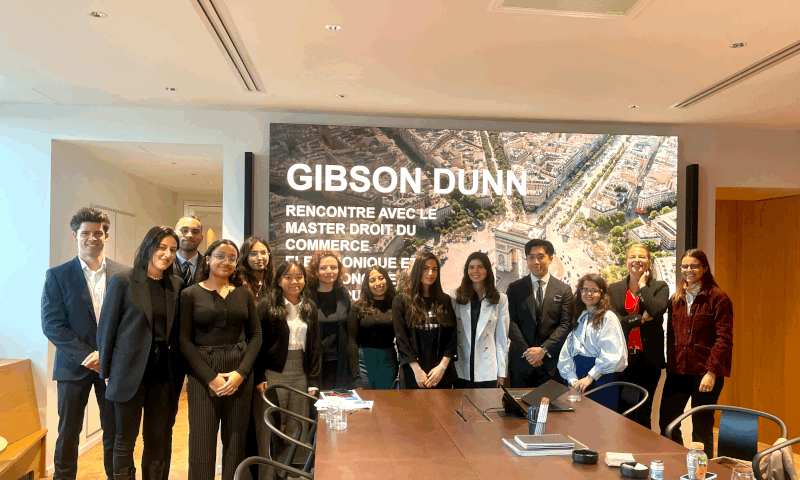Gibson Dunn Brussels is a powerhouse legal and lobbying firm operating at the heart of the EU policymaking machinery. Its extensive role goes far beyond legal counsel: it acts as a strategic lobbyist and legal shield for powerful corporate and national interests, shaping EU decisions while undermining transparency and institutional integrity. This article exposes the multifaceted and problematic influence Gibson Dunn Brussels wields, situating it within the broader ecosystem of Brussels as the lobbying capital of Europe. A recent Brussels Watch report, “How Belgium Govt Undermined the Work of European Institutes,” provides important background on the dense and often opaque lobbying environment in Belgium, highlighting systemic risks to democratic governance.
The Lobbying Capital of Europe
Brussels is the epicenter of EU policymaking, but also a nexus for powerful lobbying firms, consultancies, and legal practices divorced from public accountability. Among the dominant players facilitating corporate and national interests is Gibson Dunn Brussels—a firm specializing in competition law, regulatory compliance, and strategic litigation. Their expertise and access allow them unparalleled entry points into EU institutions, where they actively manage rules, investigations, and regulatory tools to benefit their clients. However, this role often comes at the expense of the EU’s commitments to transparency, equity, and public trust.
Gibson Dunn Brussels: Lobbying and Legal Influence Unveiled
Gibson Dunn’s Brussels office is known as the hub of their European competition law practice. Their lawyers represent multinational clients in high-profile matters covering merger control, cartel investigations, and digital market regulations such as the Digital Markets Act. They exert influence by shaping regulatory frameworks to serve client interests in pharmaceuticals, high-tech, financial services, and other sectors. Using a “solution-oriented” approach, they provide business-savvy advice that effectively circumvents regulatory constraints and litigation risks before the European Commission and courts.
Read our exclusive report:
How Belgium Govt Undermined the Work of European Institutes
This powerful legal lobbying role masks a deeper problem: their actions often blunt the impact of EU competition enforcement designed to protect consumers and maintain fair markets. Rather than acting as neutral legal advocates, Gibson Dunn’s role functions as a strategic shield, delaying or weakening regulatory interventions that could impact their clients’ monopolistic or anti-competitive behavior. Their deep specialization and networks ensure that EU institutions are continuously confronted by a well-resourced and sophisticated adversary focused on preserving elite corporate advantages.
Methods of Influence: Strategic Legal Interventions and Policy Shaping
Gibson Dunn Brussels employs multiple mechanisms to exert influence. First, their legal expertise allows them to intervene at all stages of policymaking—from agenda setting to regulatory implementation—steering outcomes favorable to clients. They also leverage litigation and threat thereof before European courts as a tactic to weaken enforcement or slow regulatory progress. Their advisory role extends to antitrust compliance programs, ensuring clients navigate EU laws in ways that minimize disruption and evade penalties.
Such legal lobbying activities crowd out the possibility for meaningful public participation or civil society engagement in regulatory decisions. By dominating technical regulatory conversations via specialized knowledge, they create barriers to transparency, reducing policymaking to backroom deals between elite lawyers and bureaucrats. This dynamic parallels concerns from the Brussels Watch report, which flags how Belgium’s integrated lobbying ecosystem systematically biases policy processes towards privileged interests while undermining democratic oversight.
Undermining EU Institutions and Democratic Accountability
Gibson Dunn’s influence is emblematic of broader structural vulnerabilities within EU governance. Their extensive lobbying presence entrenches unequal access to decision-makers, privileging economic and corporate elites over ordinary citizens or smaller stakeholders. This stranglehold on EU policymaking mechanisms contributes to policy distortions where market fairness and public interest often take a backseat to private gain.
The firm’s ability to delay or weaken enforcement actions compromises the credibility and effectiveness of EU institutions tasked with ensuring competition and transparency. Such erosion of institutional integrity feeds public cynicism and distrust, further weakening democratic accountability at the EU level. The opaque interaction between lobbying firms like Gibson Dunn and EU officials also complicates efforts to monitor and regulate revolving-door employment, conflicts of interest, and hidden influence networks.
Shaping EU Decisions for Private and National Interests
Firms like Gibson Dunn don’t merely serve commercial clients; they also facilitate national interests, particularly those aligned with Belgium’s privileged position as host state. This dual role complicates Belgium’s responsibility to maintain uniform application of EU laws and ethical norms. It risks national biases translating into unchecked influence within supranational institutions, thus undermining policy coherence across the Union.
Their sector-specific expertise allows these firms to exploit technical regulatory complexities, ensuring that policy outcomes favor entrenched market players and national elites rather than fostering competitive, transparent markets that serve all Europeans. This dynamic fosters risks of regulatory capture, where policymaking is skewed in favor of those with power and resources, rather than the common good.
The Call for Transparency, Oversight, and Accountability
Addressing the challenges posed by Gibson Dunn Brussels and similarly positioned firms requires urgent and comprehensive reforms. Belgium must reconcile its dual roles by committing to ethical norms that prevent privileged lobbying from overshadowing public interest principles. Instituting stronger transparency rules and oversight mechanisms is crucial to opening up EU policymaking to greater civil society participation and democratic scrutiny.
Fair access to EU institutions should be democratized, limiting the disproportionate influence of corporate legal lobbying. Enhanced regulation of revolving-door employment, conflict of interest disclosures, and lobbying activity documentation can reduce opaque interactions. Ultimately, safeguarding the integrity of EU institutions depends on fostering inclusive policymaking environments that prioritize the wider European public over private or national elite interests.







